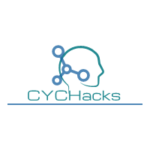What do you study? Physics, math, or history? At a glance, it looks like certain subjects are harder to learn than others, but let’s face it, every subject is hard to study if you don’t put in the work. For the most part, how you study a particular subject will determine if the learning process will be any easier.
Often, people run with the notion that locking in more hours into our study sessions should translate into effective learning, but that’s not always guaranteed. It’s best to study smart than hard. Here are 8 tips to help you study smarter, not harder.
Table of Contents
Begin Studies Early
Many students fall into the trap of piling lessons up to the last minute when their exam period is near. Learning at the last minute increases your workload and frustrates your learning process. Often, you’ll be tempted to skip a few chapters since you’re constrained by time, leading to ineffective results.
Beginning your studies earlier in the semester when there’s no exam pressure is a smarter approach to learning. It allows you the flexibility to take things portion by portion. Psychologists warn against over-studying. The human mind may feel tired from retaining more information after two hours.
It becomes easy to phase your studies into multiple two-hour sessions spaced out with breaks when you begin your studies early. Your best bet at the last minute is to extend this period which fatigues your brain and forces you to learn beyond your retention capacity.
Use Visuals
The brain is wired to favor more visuals over text. Visuals afford the brain more elaborate encoding. It’s not surprising that people can remember more than 2,000 photos with at least 90 percent accuracy during learning.
You can visualize the learning process in several ways. You can talk about highlighting the core parts of your resource books when studying. It makes it easier to refer to earlier points when you’re far advanced in your studies.
Using flashcards can also be a great alternative to get ahead in learning. It’s tempting to think flashcards are resources for kids, but there’s significant evidence to prove that using flashcards can be applied to complex concepts at the highest level of an individual’s career.
Flash cards engage active recall. Using the question side of a flashcard enables you to remember the concept from scratch rather than referring to your books. This kind of active recall practice guarantees a 150 percent higher chance of retention than passive studying.
Lastly, flashcards also engage metacognition, and applying these metacognitive strategies entrenches memories into your knowledge and improves your learning outcomes.
Make A Plan And Follow It
Learning is a structured activity and requires an intentional approach to focusing on specific books at specific times, especially if you have more than one subject to study. Suppose you apply for a criminology degree. You may have penology, cybercrime, and others as your taught courses. The best time to have your self-study on any course related to your degree is a few hours after a class session.
The human mind works incrementally. You’ll likely have an easier time self-studying penology after the course has been tackled earlier in the day. The concepts stay fresh in your memory, and all attempts to dig deeper through self-studies can entrench them in your memory.
That’s why you need a plan that spaces out study periods following this approach. It’s good to have a plan if you want to succeed. Block out a few hours in a day or week that you dedicate to schoolwork. What’s more important than drawing a plan is following the plan. Therefore, ensure you optimize your study plan, tailoring it to your schedules to make it easy to follow.
Make Notes
There are several notetaking methods you can adopt for smart learning. The overarching aim of note-taking is to organize and emphasize information. The art of taking notes during learning helps you to be active and engaged. It clarifies your thoughts and helps you form complex concepts in your mind.
Breaks Are Non-Negotiable
It’s tempting to have a rigid study plan with reading as the only activity, but reading your notes is a part of studying and not the only method you should employ if you want to grasp concepts.
Simply reading your notes a few times leads to quick forgetting. A better approach is to actively engage your study materials through referencing, forming examples, and attempting questions.
This form of learning is demanding and can involve multiple hours of trying new problems based on what you have studied.
As a matter of fact, your study plan can use some breaks to cool off the mind while engaging and digging deeper into your study materials. Breaks don’t only rest your mind, even though it’s important for memory retention and effective learning, but you can also use breaks to incentivize your learning process.
You’ll be more eager to learn deeply without your phone and other distractions if you know doing the right thing is the only way to get a break and access your mobile phone. Therefore, adding breaks to your study plan can be a great way to study smart through incentivization.
Test Yourself
Practice makes perfect. There’s no point in having multiple self-study sessions without evaluating whether or not these knowledge bits are seeping into your core. Make problems your friend. Work and rework your courses. Don’t take the answers at face value. What’s more important than answering a problem is understanding how the answering process works so you can find solutions even if parts of the problem change.
Don’t Be Afraid To Make Mistakes
Talking about testing yourself for smart learning, remember to make as many mistakes as possible. Having multiple tries on problems is better than waiting forever for a perfect solution. The more mistakes you make, the easier it becomes to get the answer on your next try.
Don’t Multitask
Sometimes, students have multiple studying commitments to redeem. You can’t neglect all the other activities you’ll have to engage in as a student, from dormitory cleaning to catching up to the latest online juice. For this reason, it’s tempting to occupy yourself with more than one task to make up for the lost time, but numerous studies indicate multitasking affects the quality and efficiency of your learning efforts. If you need to study smarter, focus deeply, and eliminate distractions.
Generally, studying can be easier if students focus on learning smartly than working hard. These 8 tips can afford you smart learning techniques to move from the traditional way of learning to more effective studying results.
Alex is fascinated with “understanding” people. It’s actually what drives everything he does. He believes in a thoughtful exploration of how you shape your thoughts, experience of the world.

